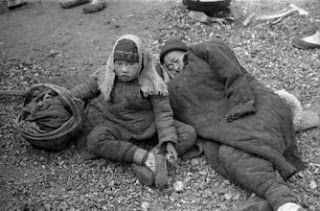Great Changes
always follows the pace of the times. My father was born in a small village. When he was a child, his greatest dream was to visit in the city because he never left the countryside. At that time, China was a poor and backward country. Many Chinese people did not even have enough food to eat. However, since 1978, great changes have taken place in China. In that year, the Chinese government began to implement Economic Reform and Open Policy, which has affected the lives of countless Chinese families, and our family is one of them. After that, the standard of living in our family become getting better and better. In addition, l had the opportunity to come to the United States.
One effect of this policy is that our family was able to have our own land. Before 1978, under communism, the Chinese government implemented the collective economy. All of land was owned by the government and collectives. A village was considered a unit, and everyone was in a collective. People working, eating, and getting off work together. Everyone’s standard of living was the same. This was how communism worked. However, this economic model have many problems. One of the most serious problem was the production efficiency was very low, and people didn’t have enthusiasm to work. Therefore, the new policy was to allocate land to individuals, so everyone could have their own land. My parents and relatives were very excited because as long as they work hard, they could get a better life.
Another one important effect of the new Reform was my father left his hometown, and he went to big city to find better job opportunities. Later, our family also moved to a coastal city. After the opening of the economy. In China, job opportunities increased a lot, especially in some coastal cities, such as Guangzhou, Shenzhen, and Dongguan. As the first open cities, they attracted a lot of foreign investment and business. At that time, my hometown was still an economically backward place, and people’s income was very low. My father wanted to earn more money, and give his family a better life. Therefore, he went to the southern city, Dongguan. This decision completely changed the lives of our family. Since my father went to Dongguan, his income has increased, so our family living conditions have improved a lot. In addition, he bought a new house in Dongguan, so we eventually moved to there.
Furthermore, after the opening of the economy, the Chinese government also has opened the door for studying abroad and immigrating, which gave me an opportunity to come to the Uniter States today. Thirty years ago, if Chinese people wanted to go aboard, it was very difficulty. People don't say to go abroad, and even to the other city in China is not easy because the Chinese government implemented a very strict population management system. At that time China was still a closed country, and between China and many countries had no contacts. In order to maintain social stability, the Chinese government did not allow the free movement of people. I think I was born a lucky generation because I was born in an open China. Today more and more Chinese students choose to study and work abroad. This gives the world a better understanding of China, and China also has a better understanding of the world.
In conclusion, I think my family's change is only a microcosm of China's three decades of change. Over the past 30 years, China has undergone tremendous changes, and people’s standard of living have improved a lot. Today, many Chinese young people cannot imagine the poverty of the past, like my cousins and me. My father often mentions their previous poor life that people did not have enough foods and clothes, and warns us to cherish the food and cherish our present lives. When I was a child, I always disdained to hear these stories, and now I gradually understand him. I am grateful for my present life.








